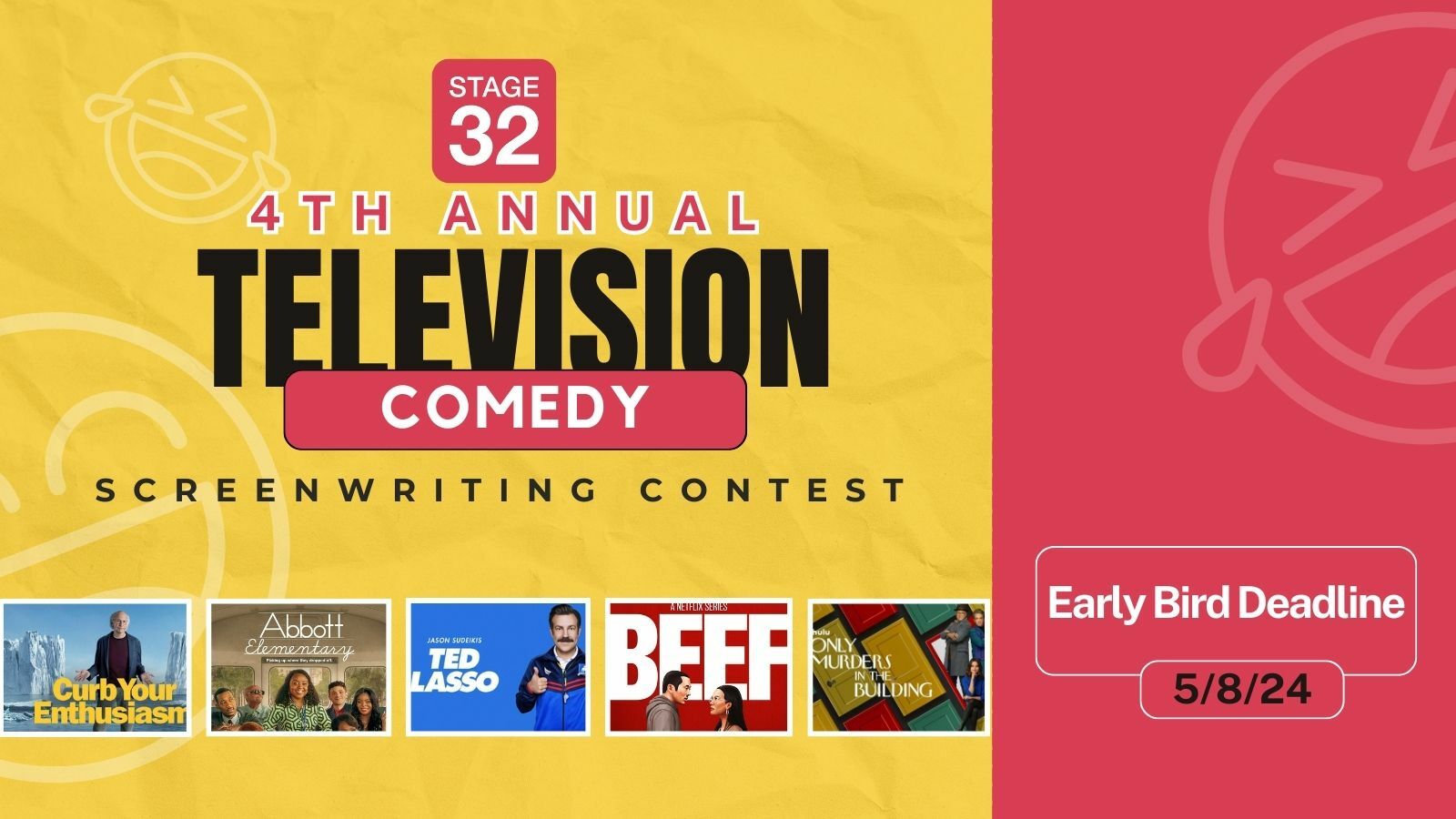I have a point in my script that one of the main characters walks by someone who is talking on the phone. The phone conversation this person is having is part of the plot, setting up some clues as to the big reason why something is happening. It's a one-sided conversation so we don't hear anything other than what Jeff is saying. What is the proper way to write the listening breaks? I've seen the following example with (listens) interchanged with (beat):
JEFF
Listen, make sure it's done (listens)
Yeah, I know what I said. Just do it (listens)
as well as:
JEFF
Listen, make sure it's done... Yeah I know... Just get it done...
Which is the correct way or more acceptable way to write it?



5 people like this
I personally would go with the ellipses. Easier on the eyes and people will get the point.
3 people like this
Like Jess said. The other ways are not used that often anymore.
1 person likes this
Seems like a personal preference. I think it really depends on the pacing. If you want a fast conversation then using the ellipses is better, if you want it drawn out to where the person is listening for a longer period of time then I use (beat).
2 people like this
Go with the ellipses. It makes reading easier and it lets the actor do his job.
1 person likes this
When I read the (listen) I got the impression that he was listen for a longer time.
Both are correct. Use which one gives the effect you are after
3 people like this
Personally, I would use the parenthetical (listens) not an ellipsis. However, put it on its own line using the proper format. Sorry, can't quite show that spacing/tabs in a thread comment, but, for example:
JEFF
(into phone)
Make sure it's done.
(listens)
Yeah, I know what I said. Just do it.
1 person likes this
Using the (. ) also gives you space for more characters.
(Listen - bored).
3 people like this
JEFF (on phone) Then use ellipsis.
That's assuming you haven't already told us in scene description Jeff is on phone. There is probably a more correct way than others and definitely some totally "no-no" ways to do it. Obliviously avoid the no-no ways but as long as the way your write it makes sense to reader and it is clear, concise etc.
If your script is A1, you wont lose a deal because your phone convo scene used ellipsis instead of brackets. My advice is find the common industry standard (sometimes there can be more than one acceptable standard) and stick with it.
2 people like this
I'm on the side of ellipsis. Well at least it's what I would use.
3 people like this
Sure, this certainly can come down to personal taste or style, and/or preferences, but technically speaking an ellipsis is used for continuity or to indicate a pause in dialogue. It does not mean "listening" nor is it an action itself, per se. Sure, within the scene context of a character using a phone, that meaning could come across. But a lot of "..." and "..." or "..." on a page can be distracting and annoying. With the parenthetical, you can also create more of an image or add some nuance while also implying "listening."
Example from The Screenwriter's Bible:
CALCUTTA
I'll make him pay, all right --
(turns to phone)
You're sure it'll work?
(nodding)
Beautiful.
Anyway, to each their own and whatever works best for your scene! LOL! But understand actual use of writing tools and punctuation, like the differences between dashes and ellipses. It certainly helps one to be more consistent in writing. ;)
3 people like this
To add, in the Screenwriter's Bible example I gave above, the dashes (which indicate a sudden shift or break in thought, an interruption) after "I'll make him pay, all right" conveys the person on the other end of the phone call interrupted Calcutta by saying something very important or exciting, which causes Calcutta to immediately react, to turn or lean into the phone behaving even more conspiratory liking what is said. So the use of parentheticals and dashes in this little exchange gives more subtext and creates nuanced intrigue about whoever is on the phone and what that person is saying and how it may affect the plot of the story. Creates a little suspense. Makes me want to read more. Find out what happens next. ;) Anyway, hope this helps. Dashes and ellipses, oh my!
1 person likes this
Every parenthetical you use is basically a waste of valuable story telling real estate. Cut 'em out & find a better way of clearly showing the story.
5 people like this
Doug, that kind of overly-reductive blanket generalization completely and utterly ignores actual context and the option all writers have to use whatever tools they choose in a manner they see fit to create a specific desired effect for a specific scene in a specific script for a specific purpose. Not to mention the effective use of parentheticals by great writers. What you call "a waste" could be an opportunity or a means. One can always save "storytelling real estate" in lots of different ways. So, no, not "every parenthetical" is a waste. Hardly.
Beth - I said basically, not absolute. Generally, scripts that show up with parentheticals on every/nearly every page often do not get read - and isn't that the point of submitting scripts. The use of parentheticals following dialog is the writer's attempt to instruct how the Actor ought to deliver the line. Many professional Actors (and Directors) take umbrage to that and that makes it more difficult for a writer to sell a script. If you are writing your script for yourself, feel free to do whatever suits you. If you intend to sell your script in the competitive market place, then I advise you to conform to the generally recognized industry norm; but it's your choice.
1 person likes this
Doug, what part of “every parenthetical” means “basically?” None. It doesn’t. Your explanation only describes one use (with bias). There are others. Plus you assume poor use and complete nonsense, of course, and that I need advisement—talk about taking umbrage. This writing choice is widely used. Industry norms indeed.
Sorry to have offended you Beth - I just keep the hell off of S32. I'm sure I can be of no further value here - I'm confident that you and nasty Bill are pleased.
When did we all wake up in a world where adults and intelligent professionals take umbrage based on punctuation.
I find this type of thing amusing. Writers spend so much energy focusing on everything other than the work.
2 people like this
Doug, I'm referring to the generalizations and false notions you stated in this thread about parentheticals and your implication that my (or anyone's) use of and/or discussion about parentheticals somehow means I don't know the competitive market, that I must "conform" to sell. Sheesh, just pick up and read any screenplay currently circulating in the market and you'll see effective, judicious use, hell, even needed use. It's just a tool. Parentheticals are also used for informational reasons, say, for language (in Spanish, subtitled). Or maybe the intended subtext isn't quite clear and you need the line to be read as (skeptical) and not by its literal meaning. Anyway, there's no conspiracy here. Sorry, you feel slighted, that was not my intention.
2 people like this
Krista, my apologies for hijacking your thread. I do hope you got some good suggestions about your different options. Best to you and good luck writing your scene. ;)
1 person likes this
Craig, this was about more than punctuation. Clearly.
1 person likes this
Beth Fox Heisinger i was just making a comment in general.
There is a trend in the amateur writing world to scare people. It seems to make others feel good. “Your script will be thrown across the room” or “I had a job emptying dumpsters full of scripts” or “ a director will immediately pass if he sees a camera angle in a script”.
People seem to get joy out of scaring the less experienced. I’ve been called an asshole in emails and still had a great working relationship with that person. The word asshole was in (), I would have taken umbrage then.
1 person likes this
(beat), (pause), [...] and in this case (listens) all mean a pause in the dialogue. Nobody that shouldn't be fitted for a straight jacket would give a rat's rectum which one the screenwriter decided to use. I use [...] because it is faster and easier. I agree with Doug that director's actors don't like it when you try tell the actor how to say their lines. You really should only do so if they couldn't figure out themselves from what is happening in the scene. For example if they were supposed to be (joking) but wouldn't know it by what is going on around them. Also I don't like use (action) in parentheses in dialogue but that is just me and I do know some people tend to do it. Really I just do what I think works for me and people can do whatever they think will work for them.
Oh no you don't, Doug! You're not leaving S32 that easy! While we all may bump heads here from time to time, I'm sure the community, especially us less experienced writers, benefit greatly from all of you. You still hold value, so let's not have this "i'm staying off S32" convo -_- It's good to have a little fight in the family at times, strengthens bonds :)
2 people like this
I agree with Beth for the reasons that she stated.
Remember, Krista, you're competing with professionals. It's best to present as smooth a read as possible to the gate keepers who potentially can affect your future. When you add the (parenthetical), I think it makes a script read as smoothly as possible, and I think it makes it look better, too (and more professional). And you're certainly not "directing" or telling an actor how to act - you're showing that the character is simply listening.
Best fortunes to you in your creative endeavors, Krista!
1 person likes this
What a waste of time Stage 32 is becoming.
Bill. Nobody is going to pass on a script if someone uses ellipsis to show a pause. I use them all the time in screenplays.
1 person likes this
Dan G: I never said anything about "passing on a script", but I stand by my reasons stated above for using parentheticals instead of ellipses. We can agree to disagree.
Best fortunes in your creative endeavors, Dan!
1 person likes this
Bill. I took it that is what you meant. Sorry if I misunderstood you. I don't think it is possible for us to disagree since I don't pretend to know or care what the best method is for showing a pause in a screenplay. I wasted about 5 minutes in this thread which is about 4 minutes more than I should have.